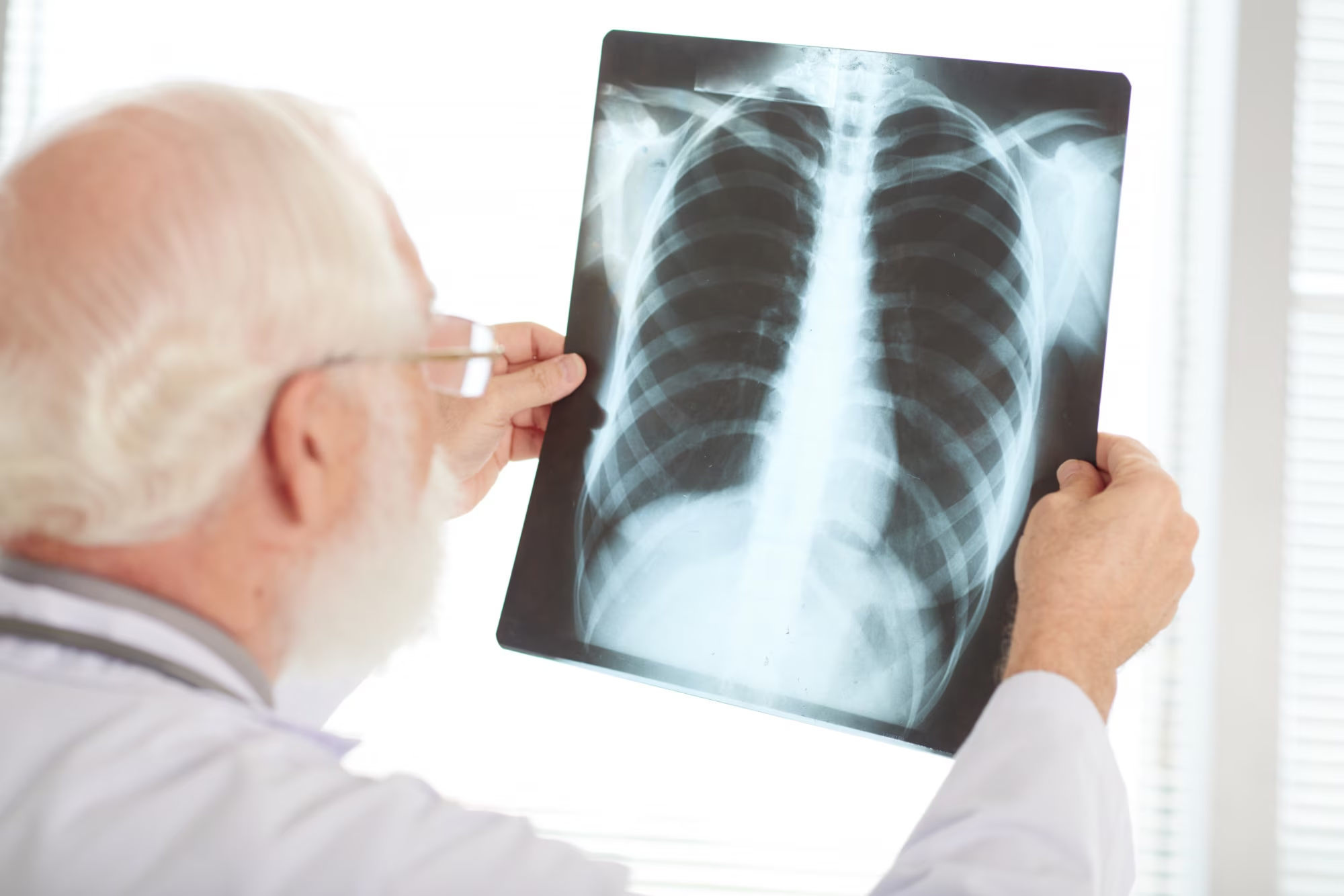RESEARCH
More than 34 million Indians live with lung disease. When combined with lung cancer and respiratory diseases like COVID-19 and influenza, lung disease is the number one cause of death by disease in India.
The Lung Research Foundation will address this critical health challenge by increasing investments in lung disease research, empower promising scientists, and expanding industry collaboration to accelerate discovery and innovation.
Since 2000, our researchers have achieved major milestones in the fight against lung disease by revolutionizing treatment and unlocking secrets of the body's immune system. Premature babies now are less likely to die from respiratory distress syndrome; tuberculosis (TB) rates are at an all-time low; and young and old with chronic lung diseases—including asthma and COPD—are able to breathe easier.

Our expanding and evolving research program supports some of the best and brightest researchers working in the field of lung disease. Advancing Research is our annual publication that illustrates the wide-reaching impact of this research, including personal stories of patients, researchers and supporters, articles on research breakthroughs and details on exciting new research collaborations. Read each issue below to learn more about how lung disease research is helping improve lives and making a difference for all those who have been touched by lung disease.

- Alpha-1 Antitrypsin Deficiency.
- Asbestos-Related Lung Diseases.
- Asthma.
- Bronchiectasis.
- Bronchitis.
- Bronchopulmonary Dysplasia.
- Bronchoscopy.
- Childhood Interstitial Lung Disease
- COPD
- Cough
- CPAP
- Cystic Fibrosis
- Lung Cancer
- Hypersensitivity Pneumonitis
- Idiopathic Pulmonary Fibrosis
- Lung Transplant
- Neonatal Respiratory Diseases
- Obesity Hypoventilation Syndrome
- Oxygen Therapy
- Pleurisy and Other Pleural Disorders
- Pneumonia
- Primary Ciliary Dyskinesia
- Pulmonary Function Tests
- Pulmonary Hypertension
- Pulmonary Rehabilitation
- Respiratory Failure
- Respiratory Distress Syndrome
Air pollution studies – Long-term exposure to air pollutants can affect lung development and increase the chance of developing asthma, emphysema, and other respiratory diseases. Results from the Lung Research Foundation-supported the largest available database on the health effects of outdoor and indoor air pollution, show a strong association between exposure to ozone, fine particles, and sulphur dioxide with an increase in breathing problems, reduced lung capacity, and risk of early death.
Lung-on-a-chip – Lung Research Fondation supported the development of a three-dimensional model of a breathing human lung on a microchip. This model tests the effects of environmental exposures, as well as the safety of new drugs.
Genetics and lung function – By analyzing data from studies around the world, Lung Research Foundation researchers and their collaborators identified more than 50 genetic changes that affect the risk of pulmonary disorders in people of Asian, and Hispanic descent. Several of these changes could affect how some drugs are developed to treat lung function problems.

Risk of respiratory disease – Mutations in a gene called macrophage receptor with collagenous structure, or MARCO, contributed to the severity of respiratory syncytial virus (RSV) disease in infants. The findings may help identify people who have a greater chance of developing severe RSV infection and provide treatments to prevent the disease.

Hexavalent chromium and lung changes – Drinking water contaminated with hexavalent chromium, an industrial chemical, can lead to genetic changes in human lung cells. These changes included permanent alterations in DNA molecules that carry genetic information, known as chromosomes, as well as problems in DNA repair.
Air pollution and COPD – Breathing air pollution can lead to COPD, as shown by a LRF-funded study that found diesel exhaust particles, a major source of air pollution, dampened the activity of genes involved stress response in the lung.
Lung cancer treatment – Non−small-cell lung cancer is often resistant to chemotherapy. Related to this type of cancer, Lung Research Foundation researchers found that silencing a gene called INO80 led to reducing tumour growth, potentially leading to better treatment options and improved patient outcomes.
Mold exposure and lung disease – Mice that inhaled spores from the mold Aspergillus fumigatus, which is typical of moisture-damaged buildings, developed allergic and inflammatory reactions when the mold spores sprouted new growth. The findings may influence the development of treatments for respiratory illnesses associated with mold exposure.
New biomarker for a respiratory condition – Lung Research Foundation researchers and their collaborators identified cholestenoic acid as a novel biomarker, a measurable substance in the body that indicates disease, for acute respiratory distress syndrome (ARDS), a life-threatening respiratory condition characterized by tissue damage and fluid build-up in the lungs. ARDS is deadly in 30-40% of cases, and only a few lung biomarkers have been validated.
Ambient air pollution and asthma – Two large Lung Research Foundation-funded studies show an association between decreases in levels of air pollutants and improvements in lung function along with reductions in asthma symptoms. The findings underscore the importance of air pollution reduction policies and strategies on improved air quality and health.
